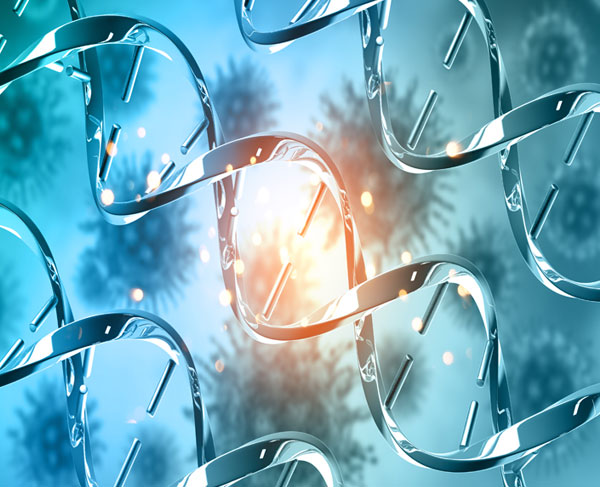Cancer Types
- Bladder Cancer
- Bone Cancer
- Breast Cancer
- Cervical Cancer
- Colorectal Cancer
- Endometrial Cancer
- Head & Neck Cancer
- Kidney Cancer
- Laryngeal Cancer
- Leukaemia
- Liver Cancer
- Lung Cancer
- Multiple Myeloma
- Nasopharyngeal Cancer
- Non-Hodgkin's Lymphoma
- Oesophagus Cancer
- Oral Cancer
- Ovarian Cancer
- Pancreatic Cancer
- Prostate Cancer
- Skin Cancer
- Stomach Cancer
- Testicular Cancer
- Thyroid Cancer
Opening Hours
- Monday - Saturday 10:00 am - 07.00 pm

Endometrial Cancer
- Endometrial cancer starts in the Endometrium, the inner lining of the Uterus (womb).
- Most cases of Endometrial cancer are diagnosed in women aged 45-74 years.
- As per GLOBOCAN statistics 2018, incidence of Endometrial cancer cases was 2.1%in a year, and deaths was 0.9%.
- If the cancer has spread regionally, the 5-year survival rate is about 69%.
- Survival rate further lowers to 17% when the cancer spreads into other areas of the body as per American Cancer Society data.
- Endometrial cancer is the sixth most commonly occurring cancer in women and the 15th most commonly occurring cancer overall.
- Endometrial cancer types
– Adenocarcinoma
– Uterine carcinosarcoma
– Squamous cell carcinoma
– Small cell carcinoma
– Transitional carcinoma
– Serous carcinoma
Causes
- Low parity.
- Late menopause.
- High Estrogen Levels – PCOS and Oestrogen producing tumors, often show chronic anovulation and increased estrogen production. This often leads to endometrial abnormalities.
- Tamoxifen – More recently, concern has been expressed about the Long-term administration of Tamoxifen to Breast cancer patients. There is evidence that it has estrogen like activity at endometrial level and long-term administration has been associated with endometrial abnormalities, including benign polyps, hyperplasia, and malignant tumors, including carcinosarcomata.
Carcinogenic agent with sufficient evidence in humans (Ref -IARC)
- Alcoholic beverages.
- Processed Meat Consumption.
- Tobacco Smoking.
- X-radiation, gamma-radiation.
Agents with limited evidence in humans (ref- IARC)
- Diethylstilbestrol.
- Endometrial polyps
- Obesity
- Hypertension
- Diabetes
- Older Age – As one gets older, the risk of Endometrial cancer increases. Endometrial cancer occurs most often after menopause.
- An inherited colon cancer syndrome – Lynch syndrome, also called hereditary nonpolyposis colorectal cancer (HNPCC), is a syndrome that increases the risk of cancers like endometrial cancer and colon cancer.
Signs and Symptoms
- Vaginal Bleeding –
Classically, endometrial tumors present with post-menopausal bleeding. Most common bleeding pattern in Uterine cancer is as follows.– Bleeding after the menopause.
– Bleeding in between periods.
– Heavier periods than usual
(if you haven’t been through menopause).– A watery or bloody vaginal discharge.
– Pain in abdomen / pelvis.
- Weight loss – sudden loss in weight without any effort.
- Women often feel presence of mass in the lower abdomen etc.
Investigations
Tests and procedures used to diagnose endometrial cancer are as follows :
- Physical examination and history.
During a pelvic exam doctor may identify :
– Abnormalities in the vagina.
– Abnormalities in the cervix with the help of a speculum. - Endometrial Biopsy
– This involves removing tissue from uterine lining for laboratory analysis. It confirms the diagnosis and type of cancer cell - PET scan/MRI/CT Scan
- Biomarkers – CA-125 blood test
- Cancer Specific Tests
– Transvaginal ultrasound – This test helps doctor in detecting uterine lining abnormalities.
– Hysteroscopy – With the help of this test doctor can get a clear picture of the uterus and the endometrium.
– A plain X Ray of the chest may be done to see if cancer has spread to the lungs.
Treatment
- To plan personalised treatment for each individual patient as every individual is different even if they have the same type of cancer.
- To improve health related quality of life (QOL) in all types and stages of cancer patients.
- To plan for partial or total regression of tumour depending on the nature of tumors.
- To increase overall survival (OS) of patients.
- To increase disease free survival (DFS) where complete resection of tumour is achieved.
- To provide a treatment option to patients who are refractory to conventional treatments like chemotherapy / radiotherapy / immunotherapy etc.
- To reduce the rate of growth of the tumor in recurrent and advanced staged cases.
- To increase progression free survival in advance cases.
- To reduce impact of symptoms related to progression of disease.
- To improve confidence of patients.
- To provide palliative support in end-of- life cancer cases.
- To add happiness and extension of life to cancer patients.
- To compliment other therapies like chemotherapy, radiotherapy in a synergistic way.
- To reduce severity or adverse effects of other conventional treatment. This reduces incidence and frequency of hospitalization.
- It is pertinent to note that Rasayu Cancer Clinic does not claim or blame anything while communicating any aspect to cancer patients.
- Rasayu Cancer Clinic focuses on Ayurveda fundamental based therapies.
- Rasayu Cancer Clinic believes in continuous improvement in service and science.
- Rasayu Cancer Clinic always advocates patient centric approach which leads to long and happy life of cancer patients.
- Every patient has a right to choose the therapy.
- Rasayu Cancer Clinic never imposes Rasayana therapy on patients but helps them to take the right decision, hence making patients/ relatives well aware about the disease and possible outcomes along with its risk benefit and cost benefit ratios.
- Rasayu Cancer Clinic is well connected with global updates in cancer care and therapies, through advisors and collaborations with national and international institutes.
Treatment of Endometrial cancer depends on the characteristics of cancer type, stage, age and general health.
Surgery
- Surgery to remove the uterus with or without fallopian tubes and ovaries is recommended for most women with Endometrial cancer.
- Role of surgery in endometrial cancer – Click Here
Chemotherapy
- Chemotherapy treatment is a therapy to weaken and destroy cancer cells at the original cancer site and any cancer cells that may have spread to other parts of the body.
- While destroying cancer cells, it destroys fast dividing normal cells, which further creates multiple side effects.
- Side effects of chemotherapy in gynaecological cancer – Click Here
- Side effects of Chemotherapy – Click Here
- Adverse drug reactions (ADRs) of Chemotherapy – Click Here
Radiation Therapy
- Radiation therapy uses powerful energy beams, such as X-rays, to kill cancer cells.
- Radiation therapy involves Radiation from a machine outside your body called external beam radiation therapy.
- Radiation placed inside your body. Internal radiation (brachytherapy) involves placing a radiation-filled device, such as small seeds, wires or a cylinder, inside your vagina for a short period of time.
- Radiotherapy side effects.
– Click Here
– Click Here
Hormone Therapy
- Hormone therapy involves taking medications that affect hormone levels in the body.
- It may involve Progesterone enhancer and estrogen reducer drugs.
- This treatment uses hormones or hormone-blocking drugs to treat cancer.
- It differs from the hormone therapy given to ease the symptoms of menopause (menopausal hormone therapy).
- At this time, no one type of hormone treatment has been found to be the best for endometrial cancer. (Ref – American Cancer Society).
Immunotherapy
- Efficacy of this treatment is still not clear as per the National Library of Medicine, since there is a need for improved biomarkers.
- Cost of this treatment is high and many times does not fit into cost benefit ratio.
- Side effects – Click Here
- Risk and benefits of Immunotherapy – Click Here
- Side effects of Immunotherapy – Click Here
Rasayu Cancer Clinic Rasayan Treatment Protocol – To know more please click here
Rasayu Therapy is recommended for those :
- Who voluntarily opted for this treatment as their first choice.
- Who are disenchanted with the past treatments.
- Who do not see any other options of treatments.
- Who are looking for personalized treatment plan.
- Who desire a convenient home-based oral therapy which is easy for consumption.
- Who are susceptible to acquire hospital borne infections/ complications, hence not willing to be hospitalised.
- Who are looking for favourable risk benefit ratio.
- Who desire to improve Quality of Life benchmarks based on global standards and monitored regularly.
- Who wants to be involved in decision making for choice of treatment.
- Who are willing to be involved in monitoring the efficacy of Rasayana Therapy.
- Who believe in the transparency of the process by conducting regular investigations by biochemical parameters/ hi tech imaging techniques like PET scan etc.
- Who are looking for professionals being sensitive to the patient, the care givers and the family.
- Who desire to take even with other treatments including Chemotherapy / Radiotherapy.
Disclaimer : This Website contains certain links such as You Tube links, research paper links / website links / audio visuals / internet information already available in public domain. The information contained in the audio visuals is meant for use by qualified Medical Professionals. The content of the links etc has been made available for informational and educational purposes only. Rasayu Cancer Clinic and its associates do not make any warranties with respect to the accuracy, applicability, fitness, or the completeness of the content of such links etc. The information contained in such links represents the views and opinions of the original creator of such links and are not views endorsed by the Rasayu fraternity.



